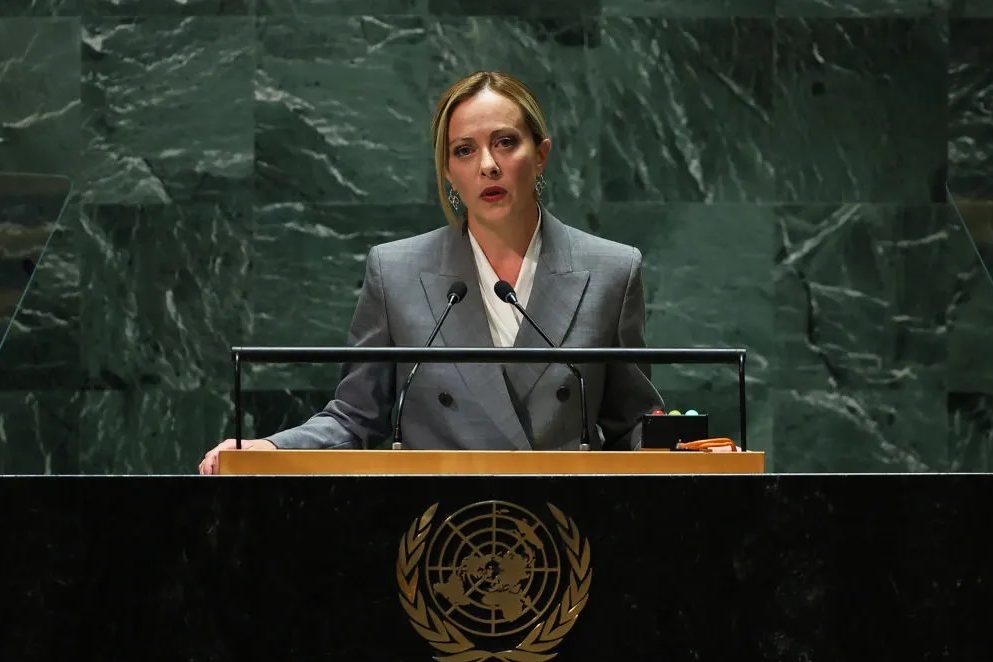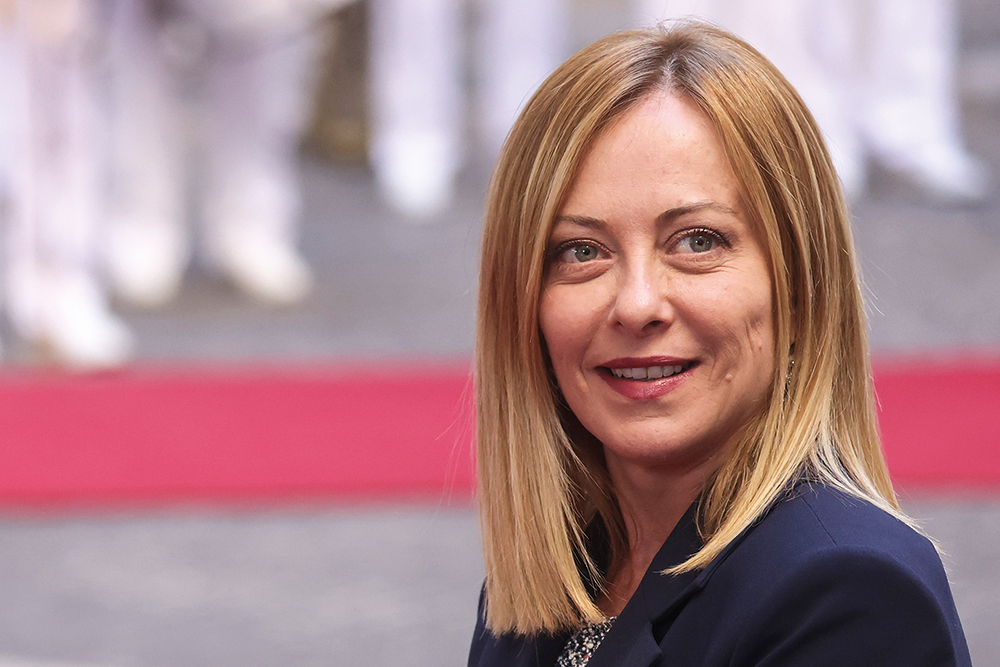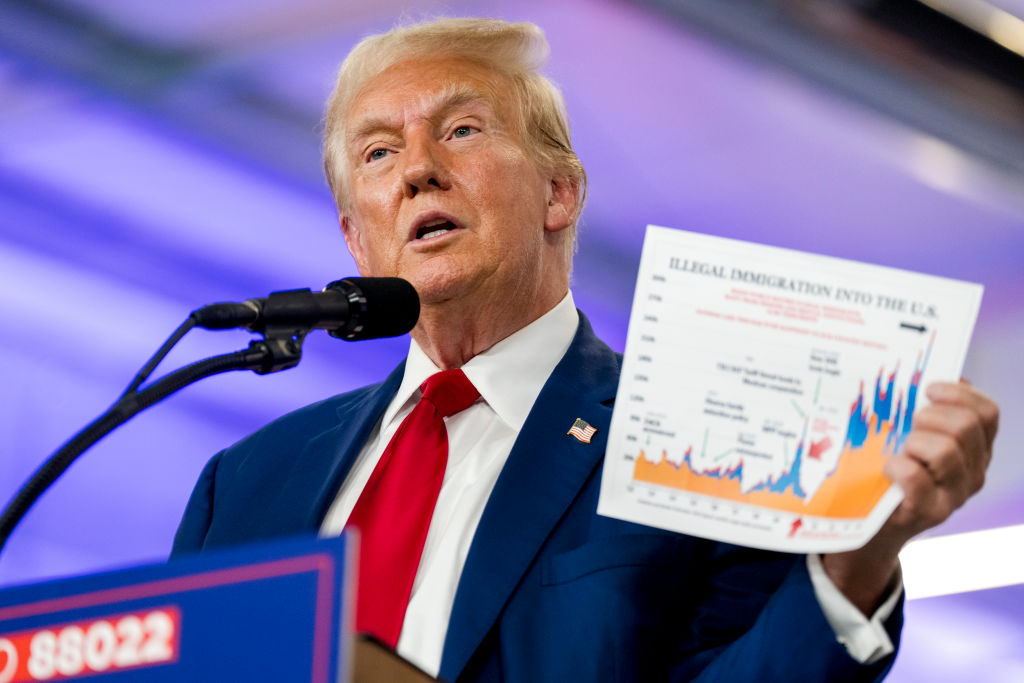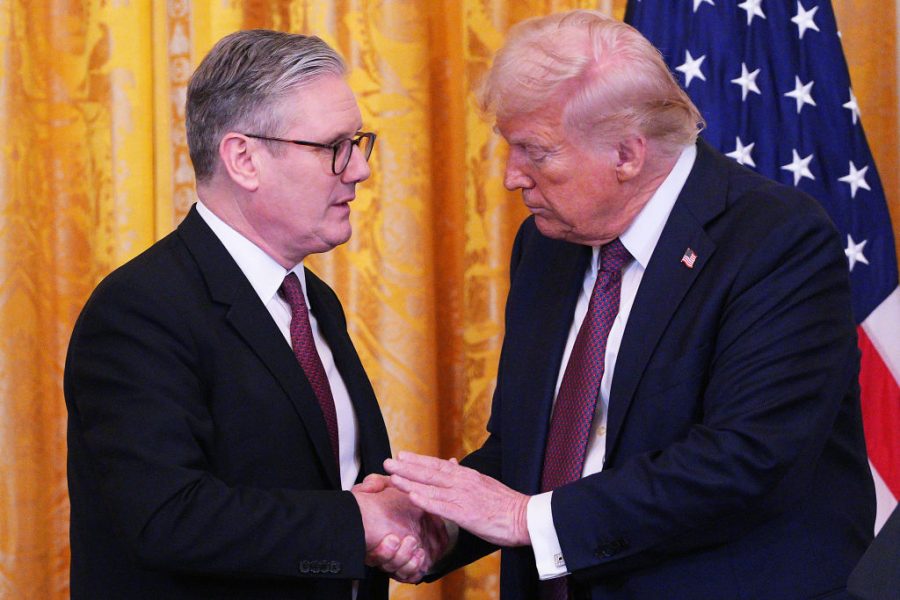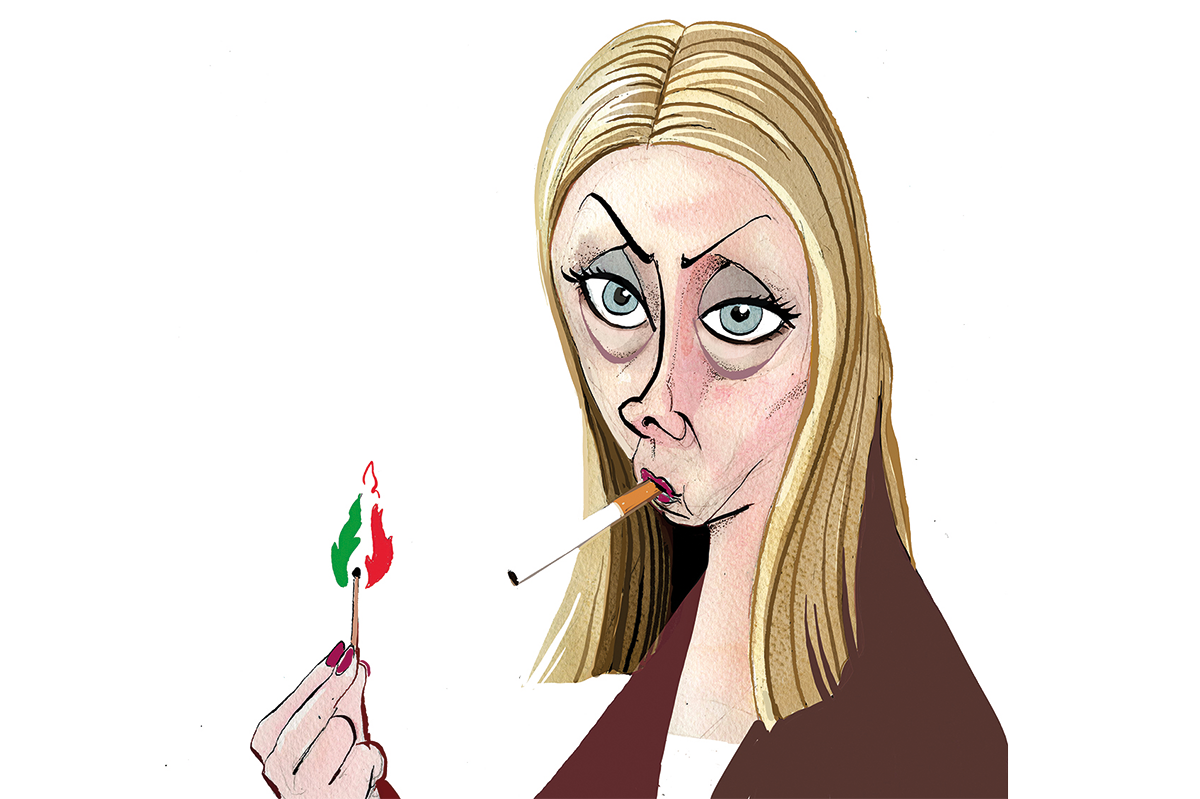Is there a plot afoot to oust Giorgia Meloni as Italy’s prime minister and replace her with someone more to the progressive left’s taste?
There have been rumors in the European media that Meloni’s government is teetering and that it “could fall and make way for a technocrat government.”
The audacity of Germany is breathtaking
In 2011 Mario Monti formed such a government after the resignation of Silvio Berlusconi and he filled his cabinet with unelected technocrats, prompting Berlusconi to accuse him of “adopting the rules of austerity proposed by Germany.” The former European commissioner lasted just over a year in office before he resigned.
A decade after Monti was parachuted into Rome, another darling of Brussels was called upon to rescue Italy from democracy: this time the economist Mario Draghi, the president of the European Central Bank between 2011 and 2019. He was gone within eighteen months.
Meloni was in combative mood during an interview at the weekend when she was asked about the health of her government. She promised that she “will definitely not fall because of a conspiracy. What happened to others before me will not happen to me.”
Whispers of Meloni’s impending downfall have been doing the rounds of the left-wing Italian media for several weeks, growing in intensity since last month’s influx of 11,000 migrants onto the Mediterranean island of Lampedusa.
She hit back, declaring that “the left can continue to make the list of ministers of the technical government, meanwhile we will continue to govern.”
As well as her failure to stem the flood of migrants into Italy, Meloni’s government is also struggling with the economy. The country’s GDP shrank by 0.4 percent in the second quarter and its manufacturing sector contracted in August for a fifth consecutive month. Meloni’s ministers have accused the European Central Bank of pushing the Eurozone towards recession with its sharp rise in interest rates.
There are some within Meloni’s government who wonder if this isn’t part of a plot to destabilize the PM. “They are wishing Italy ill hoping to wrest some power for themselves,” tweeted defense minister Guido Crosetto. “Many are rooting for a rise in the spread or a downgrade by the rating agencies so they can question the government and upset, again, the will of the people.”
In another tweet at the weekend, Crosetto accused the left in Italy of spreading disinformation about the government “to prove that dangerous ‘fascists’ are in power in Italy.”
This has been their strategy from the moment Meloni was elected PM in September last year. Progressives have been undermining Meloni since her first day in power, not just in Italy but across Europe. “In Europe, we have certain values and, obviously, we will be vigilant,” was how French prime minister Elisabeth Borne reacted to the victory of Meloni.
Meloni has not turned out to be Mussolini in make-up and, in fact, for some on the Italian right, she has proved too liberal; her deputy PM and a partner in her coalition, Matteo Salvini, is said to be frustrated by her failure to tackle the migrant crisis more robustly. Meloni retorts that she is doing her best but she is stymied by her enemies, in Italy and elsewhere.
In July Meloni and Ursula von der Leyen, the European Commission president, signed a $1 billion deal with Tunisia to combat illegal migration across the Mediterranean. It was hailed as a deal that would stem the number of migrants arriving in Italy but also one that would also smash the smugglers’ business model, one which in the first half of 2023 earned the traffickers more than $900 million.
The left was furious. Elly Schlein, the Swiss-born, half-American leader of Italy’s left-wing Democratic Party said the deal was “yet another attempt to externalize border control without taking into account respect for democracy and human rights.”
Equally outraged was the EU’s chief diplomat responsible for foreign affairs, Josep Borrell, a former socialist Spanish minister, who expressed to von der Leyen his “incomprehension” at the deal.
Germany and Luxembourg were the most vociferous opponents to the deal among the twenty-seven member states, although Germany’s hostility may arise from a conflict of interest. Meloni wrote an angry letter to Chancellor Olaf Scholz last week in which she expressed her “astonishment” that the German foreign ministry had recently contributed more than $800,000 to German NGO vessels which collect migrants off the coast of North Africa and drop them on Italian soil. For a few years there have been allegations that these vessels are working with the people smugglers, the same people whom the Pope recently described as “cruel.”
Last month Germany informed Italy it will not accept any more migrants under a voluntary solidarity pact until further notice. France has also vowed that not one of the 11,000 migrants who landed on Lampedusa last week will cross its borders.
Germany and Italy clashed again last week as EU states attempted without success to agree a new migrant pact. The German Greens demanded that the text of the final deal “offered stronger human rights guarantees for migrants.” Italy refused to accept the wording but it is hoped an agreement will be reached in the coming days.
As the EU bickered, Elon Musk circulated a video on Twitter that criticized the German NGO vessels currently collecting migrants in the Mediterranean and bringing them to Italy. “Is the German public aware of this?” asked Musk.
“Yes,” replied the German government. “And it’s called saving lives.”
The audacity of Germany is breathtaking. The country has been described recently as the “Sick Man of Europe” because of its ailing economy. It’s also the Sanctimonious Man of Europe, and if Meloni were to fall no country would have conspired in her demise as much as Germany.
This article was originally published on The Spectator’s UK website.



